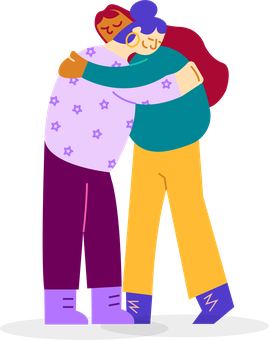Death can be hard to talk about, but we believe we need to talk about it.
Grief, mourning and loss are sad facts of life – and sadly, all too familiar for people who are homeless and people who work or volunteer with homeless people. The Dying Homeless Project, run by the Museum of Homelessness (MoH), is here to remember people who have died while homeless with love and dignity, and to provide a space and network for us to support each other in grief and campaign for change to prevent future unnecessary deaths.
It is not a new project; here’s a short history. The Dying Homeless Project was initiated by the Bureau of Investigative Journalism in 2017. In the last 18 months, the project has continued to be run by MoH who worked with the Bureau when the time came to hand it over. Why a museum? In our earliest days, it was a subject that came up regularly. In our group discussions when planning what MoH could be, people said: “We need a space where I can grieve for and remember people I’ve known and lost.” We feel that by working with the Bureau in the way we have, we are part of the way there. MoH doesn’t have its own physical space yet. Whilst we look for one, our memorial page can fill a gap and provide this much needed space: https://dying-homeless.museumofhomelessness.org/
In the time we have been running the project, we have continued to remember people and campaign for change. Last year we revealed that a person dies whilst homeless every 19 hours in the UK. Most recently we worked with the BBC as we revealed our data and figures for 2019, our figures show that up to 40% of people who die homeless are accessing some form of temporary accommodation at the time of their death.
So where are we at now? The ONS has just released its figures for 2019 that estimate 778 people died while homeless in 2019 based on 563 identified (actual) deaths. Our records show similar numbers. We documented the deaths of 677 people in 2019. We collected this information through Freedom of Information requests and from homelessness services. Sadly, the new ONS statistics confirm what we all know: that homelessness is a growing issue in the UK, and people continue to be at risk of dying on the streets, in insecure or in poor-quality accommodation. Whilst the statistics are important, our work seeks to remember that each statistic was a fellow human being, with a full life and people who loved them.
It would be remiss of us not to mention Covid-19 at least once, but we don’t need to tell you the risks of Covid-19 to people who are homeless. You know that, and likely you have been working harder than ever over the past year to support people and keep them safe.
We are now continuing to collect personal tributes to people who have died while homeless or insecurely housed during 2020 and we aim to release our findings in the New Year to inform our future campaigning. We believe that part of a respectful death is that people are remembered for who they were, not how they died; that’s why we feature personal memorials on our website. If you have lost someone you cared about this year, we would welcome your submission for our memorial site where you can tell us a bit about them. They will be remembered with love and dignity.
But the project is also about supporting each other. We know how tough it is when someone dies, and we’ve heard people telling us that they need a space to come together and talk about death. To that end, we’re setting up the Dying Homeless Death Café, to provide a space for us all to confidentially explore death and loss and remember people we have lost. The first ones will be held in January and you can find out more and sign up here: https://museumofhomelessness.org/2020/11/23/dying-homeless-project-coalition-death-cafe-events/
If you would like to discuss the project further, or would like to submit a tribute to someone you knew to be featured on our memorial website, you can contact Miranda Keast: miranda@museumofhomelessness.org
